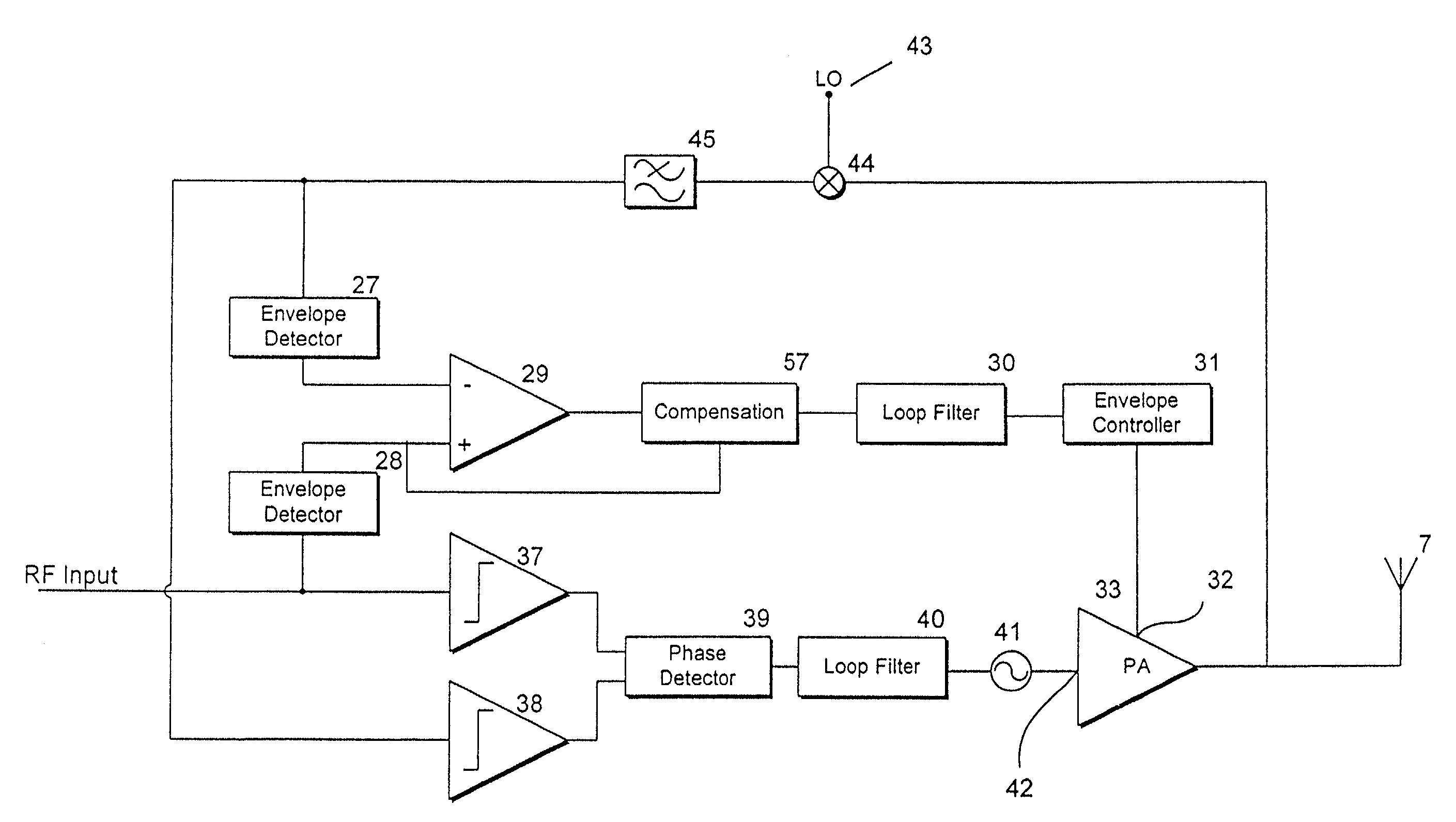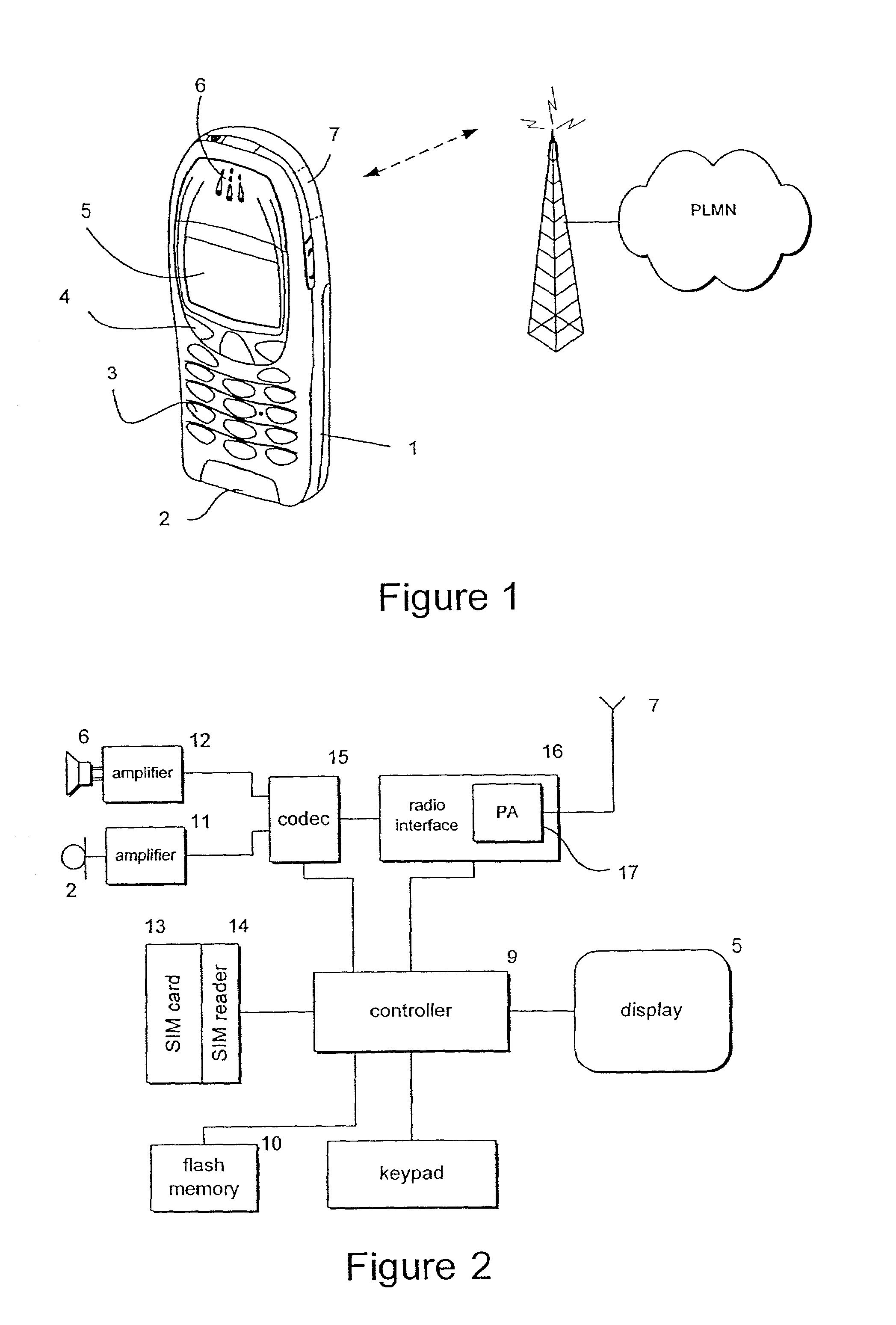Transmitter circuits
a technology of transceivers and circuits, applied in waveguide devices, modulation, amplifier modifications to reduce non-linear distortion, etc., can solve the problems of non-constant envelope modulation, inherently less efficient, and the use of linear power amplifiers for amplification of non-constant envelope rf signals, so as to increase efficiency and save costs.
- Summary
- Abstract
- Description
- Claims
- Application Information
AI Technical Summary
Benefits of technology
Problems solved by technology
Method used
Image
Examples
Embodiment Construction
[0040]Referring to FIG. 1, a mobile station in the form of a mobile telephone handset 1 includes a microphone 2, keypad 3, with soft keys 4 which can be programmed to perform different functions, an LCD display 5, a speaker 6 and an antenna 7 which is contained within the housing.
[0041]The mobile station 1 is operable to communicate through cellular radio links with individual public land mobile networks (PLMNs) operating according to communication schemes such as UMTS and EDGE.
[0042]FIG. 2 illustrates the major circuit components of the telephone handset 1. Signal processing is carried out under the control of a digital micro-controller 9 which has an associated flash memory 10. Electrical analogue audio signals are produced by microphone 2 and amplified by pre-amplifier 11. Similarly, analogue audio signals are fed to the speaker 6 through an amplifier 12. The micro-controller 9 receives instruction signals from the keypad and soft keys 3, 4 and controls operation of the LCD displ...
PUM
 Login to View More
Login to View More Abstract
Description
Claims
Application Information
 Login to View More
Login to View More - R&D
- Intellectual Property
- Life Sciences
- Materials
- Tech Scout
- Unparalleled Data Quality
- Higher Quality Content
- 60% Fewer Hallucinations
Browse by: Latest US Patents, China's latest patents, Technical Efficacy Thesaurus, Application Domain, Technology Topic, Popular Technical Reports.
© 2025 PatSnap. All rights reserved.Legal|Privacy policy|Modern Slavery Act Transparency Statement|Sitemap|About US| Contact US: help@patsnap.com



